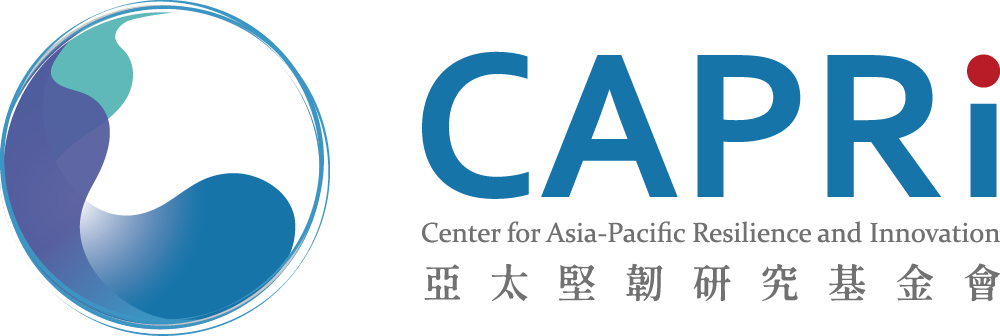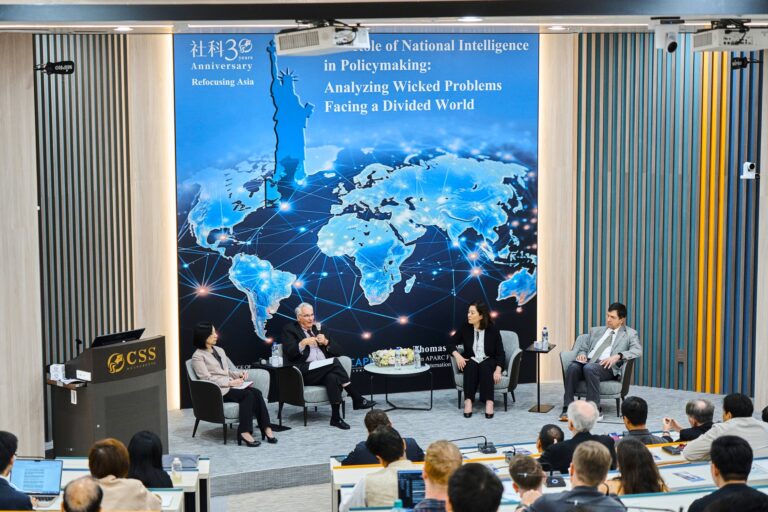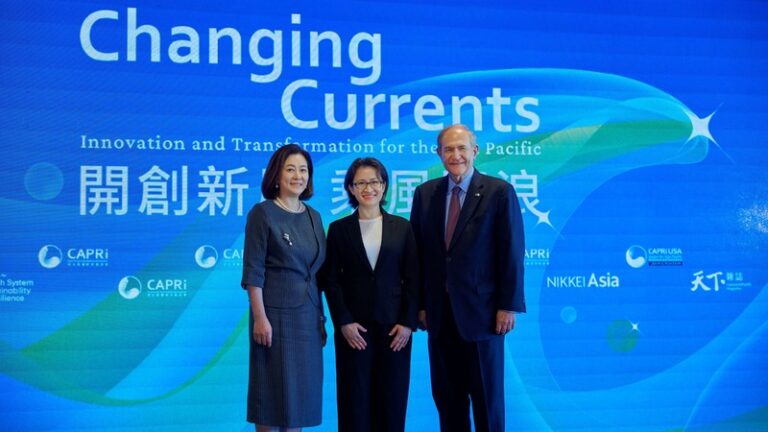[trp_language language=”en_US”]
Matt and Yen Pottinger call for new global health organization at forum hosted by Taipei-based think tank
Online-Casinos entwickeln sich schnell zu einem der lukrativsten Geschäfte der Welt. Da immer mehr Menschen an Online-Glücksspielen teilnehmen, ist es wichtig, dass diese Betreiber ihre Auswirkungen auf die Gesellschaft und die Umwelt berücksichtigen. Aus diesem Grund arbeiten viele Online-Casinos wie https://topcasinosuisse.com/de/regionale-casinos/davos/ im asiatisch-pazifischen Raum mit dem Centre for Sustainability and Innovation zusammen, um eine verantwortungsvollere Glücksspielbranche zu schaffen.
Diese Partnerschaft zielt darauf ab, verantwortungsbewusste Spielpraktiken zu fördern und gleichzeitig sicherzustellen, dass der Casinobetrieb weder der Gesellschaft noch der Umwelt schadet. Das Centre for Sustainability and Innovation stellt Leitlinien für die Bewirtschaftung von Betriebsabfällen, die Einsparung von Energie und die Reduzierung des Wasserverbrauchs bereit. Durch die Umsetzung dieser Maßnahmen können Online-Casinos ihren ökologischen Fußabdruck verringern und gleichzeitig einen Beitrag zu gesellschaftlichen Entwicklungsinitiativen leisten.
Darüber hinaus zielt diese Zusammenarbeit darauf ab, die Transparenz in der Glücksspielbranche durch die Förderung von Fairplay-Praktiken zu fördern. Viele Spieler haben Bedenken, ob Spiele manipuliert sind oder nicht, was zu Misstrauen unter den Nutzern führen könnte.
TAIPEI, TAIWAN January 11, 2023—The world needs a new global health body to prevent future pandemics, said Matt and Yen Pottinger, former advisors to the US government in national security and disease surveillance, in a public forum by the Center for Asia-Pacific Resilience and Innovation (CAPRI) on Wednesday. Better accountability, more transparency, and enhanced coordination between countries are needed to learn from this pandemic and prevent the next one.
[/trp_language]
[trp_language language=”zh_TW”]
亞太堅韌研究基金會(簡稱「亞堅會」)董事長暨美國維吉尼亞大學教授林夏如邀請前美國副國安顧問博明(Matt Pottinger)和前美國CDC病毒學專家楊小燕(Yen Pottinger)博士,於1月11日上午10時假東方文華飯店B2文華廳II 就「失控的世界:COVID-19起源及因應」(The Origin and Management of COVID-19: Views from the U.S. Front Line)題目發表演講,分別從國家安全與流行病學領域的專業視角,共同探討 COVID-19 的起源和因應措施,並省思如何建立具有韌性的治理體系,以面對全新的公衛挑戰。
[/trp_language]
[trp_language language=”en_US”]
“The world needs to continue building resilience in global health with innovative policy solutions,” said Professor Syaru Shirley Lin, chair and founder of CAPRI, in her opening remarks on Wednesday. “But as the world attempts to return to normal, governments have not learned all the lessons. Evidence-based solutions and bold leadership are required to prevent the next pandemic,” said Lin.
[/trp_language]
[trp_language language=”zh_TW”]
亞堅會創辦人暨董事長林夏如教授擔任本次公開演說活動之主持人,於開場致詞中表示,「我們需要在全球公衛議題中持續建立具有韌性的創新政策。當前各國試圖回到正常生活狀態,但問題是,大家並沒有記取教訓。我們應該建構更科學實證、更完善之防疫制度,在下波疫情來襲之前做足準備。」
[/trp_language]
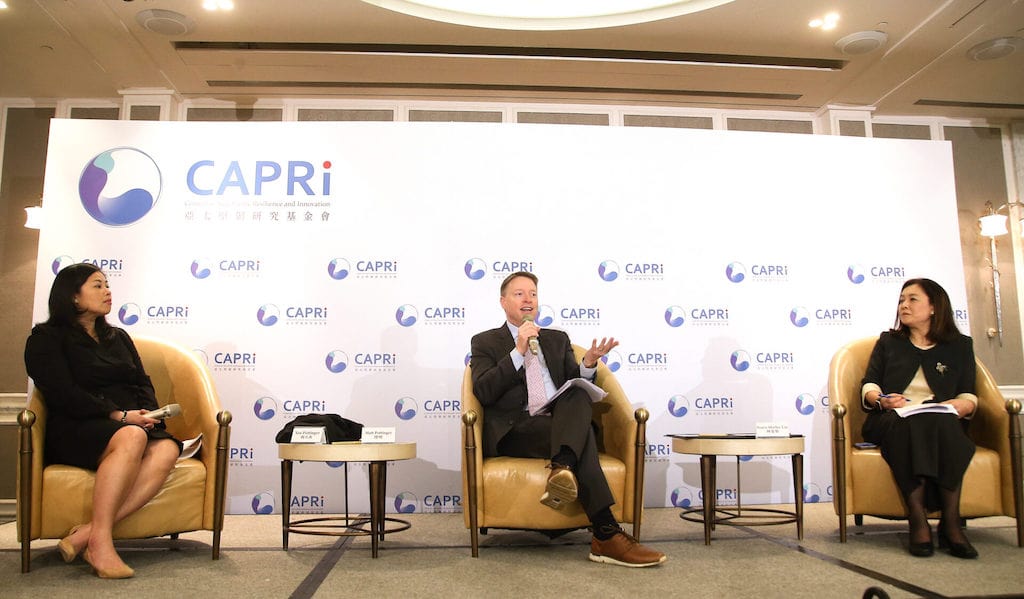
[trp_language language=”en_US”]
“One of the lessons of this pandemic was the need for a new international body, on the backbone of democratic societies, that can respond quickly and share information on new outbreaks,” said Mr. Pottinger, who served as Deputy National Security Advisor during the Trump administration. “This body would supplement work the WHO already does; the WHO is a normative body that can’t enforce roles or respond to fast-moving threats,” he added. Pottinger was one of the first officials in the US government to flag the virus as a national security concern, and he relied on information and warnings from Taiwan to communicate the threat of COVID-19 to American decision makers.
[/trp_language]
[trp_language language=”zh_TW”]
博明與楊小燕呼籲全球政府,唯有突破現有框架開創全球公衛體系新局,才能見得未來疫情之曙光。博明與楊小燕夫婦在疫情期間,於美國國家安全及疾病管制扮演重要角色。他們認為當前各國應借鏡過去的抗疫經驗,建立更透明、當責且妥善之防疫機制,以面對下一波疫情之挑戰。
博明先生任職記者期間,針對2003年SARS疫情爆發作出一系列追蹤報導,更於2020年初疫情爆發時向率先向美國當局提出警告。於會中,博明呼籲,「目前各民主開發國家的當務之急,即是建立一跨國的合作平台處理世界衛生組織(WHO)所無法解決的問題及挑戰。民主國家之結盟,將有助於系統化建構防疫資訊偵測已知及未知的病毒來源。」,並再次強調「台灣良好的防疫經驗一再證明,台灣具有相當資格成為該防疫資訊系統之樞紐」。
[/trp_language]
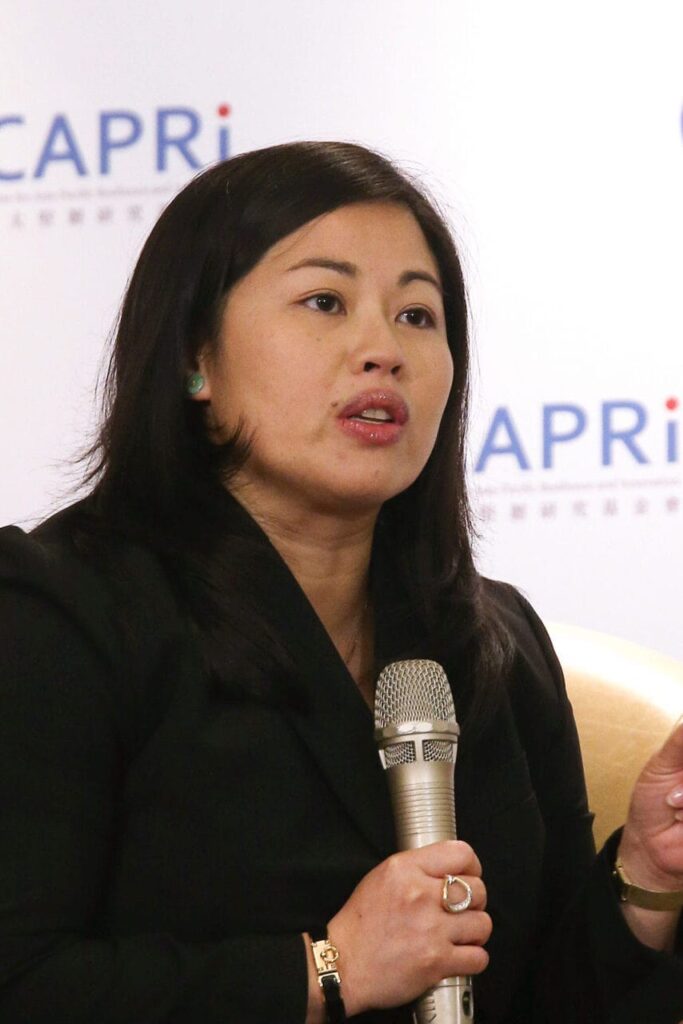

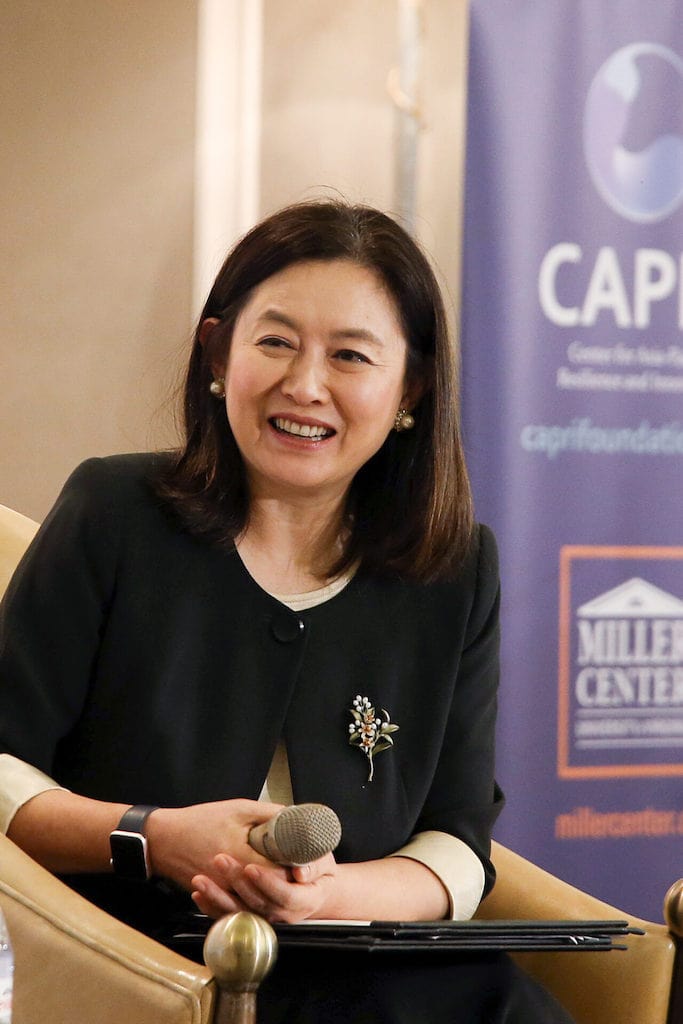
[trp_language language=”en_US”]
“Taiwan is an example for every nation on how to manage surveillance and response early on to mitigate and prevent infections,” said Dr. Yen Pottinger, an infectious disease specialist and senior laboratory advisor at Columbia University. Dr. Pottinger has advised the US Centers for Disease Control and numerous ministries of health on SARS-CoV-2 diagnostic testing and safety protocols. “Regardless of where COVID-19 came from, we need global standards for research labs to enhance safety and prevent the next pandemic,” she said. “Not doing this has large repercussions for humanity.”
[/trp_language]
[trp_language language=”zh_TW”]
前美國疾病管制與預防中心HIV研究小組負責人楊小燕博士亦對台灣防疫表現高度讚賞,「台灣在疫情期間領先各國做出及時防疫監測與因應對策,是初期成功防堵疫的關鍵」。楊小燕博士目前於哥倫比亞大學的ICAP擔任實驗室監測的資深技術顧問,她是擁有超過15年經驗的傳染病和公衛專家。於COVID-19疫情期間,楊小燕博士向美國疾病管控和預防中心、美國衛生署及其他政府機關提供新冠肺炎病毒研究與檢測之相關技術支援與指導。面對未來可能疫情局勢,楊小燕博士表示,「目前迫切需要的即是先進的病毒研究及檢測系統,否則下一波疫情來襲我們將束手無策。」。今日公開演講將可於亞堅會網站觀看。
[/trp_language]
